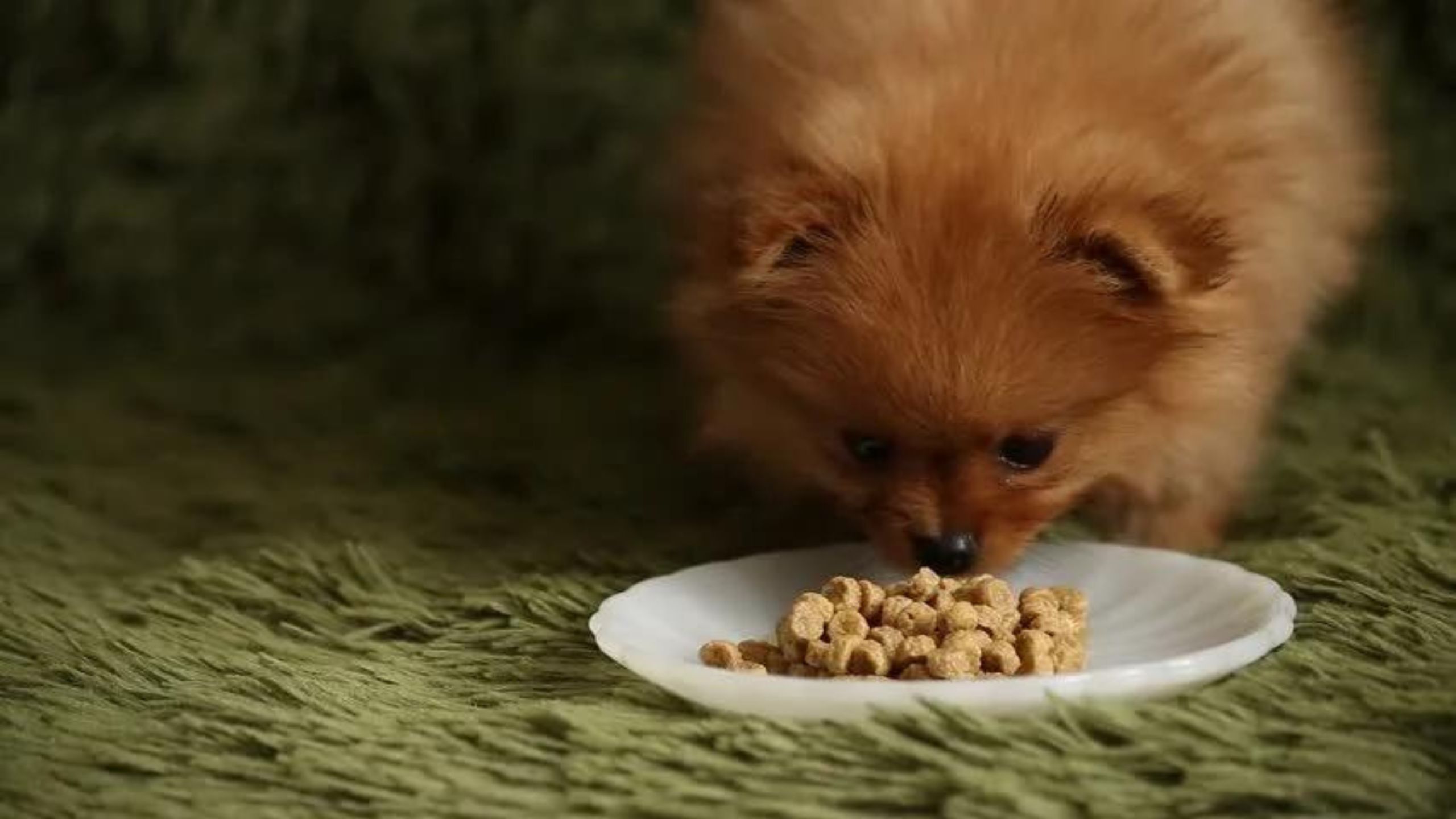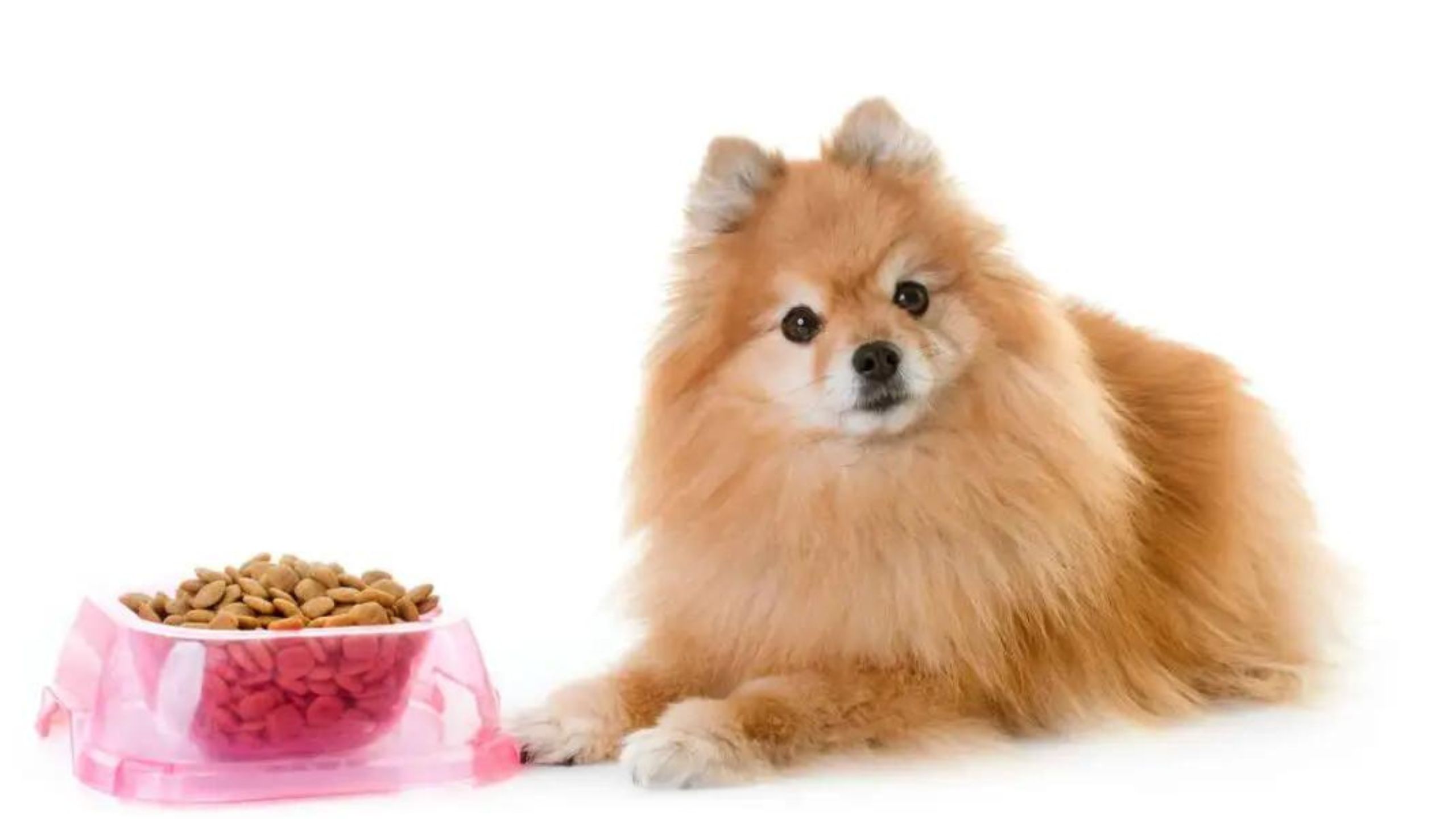It’s a happy and exciting moment to bring a new pet home, but it also entails a lot of responsibilities. Sustaining a feed a pomeranian Puppy’s growth and development through proper feeding is one of the most crucial parts of their care. We’ll go over the finest foods to give your feed a Pomeranian Puppy in this extensive guide, along with practical advice on how to make sure their diet is well-balanced.
Importance of Proper Nutrition
Your feed a Pomeranian Puppy general health and well-being are greatly influenced by their diet. It gives them the vitamins, minerals, and nutrients they need to boost their growth, fortify their immune systems, and stay in the best possible health. The correct diet will boost your puppy’s cognitive development, help them grow strong bones and muscles, and give them a glossy coat.
Frequency of Feeding
Feed a Pomeranian Puppy have small stomachs and high energy levels, which means they require frequent meals throughout the day. The general recommendation is to feed your Pomeranian puppy three to four meals per day until they reach around 12 months of age. This helps prevent overeating and ensures they receive a steady supply of energy to fuel their active lifestyle.
Best Food Options for Pomeranian Puppies

When it comes to choosing the right feed a Pomeranian Puppy, it’s essential to prioritize high-quality ingredients that meet their nutritional needs. Here are some recommended food options:
Commercial Puppy Food
Look for reputable brands that specifically formulate their products for small breed puppies. These foods are designed to provide balanced nutrition with the right blend of protein, carbohydrates, and fats.
Canned Puppy Food
Canned puppy food can be a good addition to your Pomeranian’s diet. It provides moisture and is often more palatable for picky eaters. Make sure to choose high-quality canned puppy food without any artificial additives or preservatives.
Raw Food
Some pet owners choose to feed their Pomeranian puppies a raw food diet, which consists of minced raw chicken carcasses and other raw ingredients. However, it is crucial to consult with a veterinarian or a canine nutritionist before opting for a raw food diet, as it requires careful planning and preparation to ensure balanced nutrition.
Home-Cooked Meals
If you prefer preparing meals for your Feed a Pomeranian Puppy at home, ensure the recipes are well-balanced and meet their nutritional requirements. Include lean protein sources like chicken, lamb, beef, or turkey, along with nutrient-dense ingredients such as flaxseed, turkey liver, and salmon oil.
Dry Food
Dry food can be a convenient option for feeding your Pomeranian puppy. Look for high-quality dry food options that contain real meat as the primary ingredient and avoid those with fillers, artificial flavors, or excessive grains. It’s best to choose smaller-sized kibble for easier digestion and chewing.
Foods to Avoid
Knowing what to give your Pomeranian puppy is crucial, but it’s also critical to be aware of items that may be detrimental to their health. These foods should be avoided:
Chocolate: Theobromine, which is present in chocolate, can be poisonous to dogs and result in a number of health problems.
Caffeine: Tea and coffee are examples of beverages that contain this stimulant, which in big doses can be lethal to dogs.
Onions and Garlic: These foods have the potential to harm a dog’s red blood cells and result in anemia.
Raisins and grapes: These foods should be completely avoided since they can lead to kidney failure in dogs.
Dogs may become poisoned by the artificial sweetener xylitol, which is found in many sugar-free goods.
Gradual Transition and Portion Control
It’s crucial to introduce new foods to your Pomeranian puppy gradually. Unexpected dietary adjustments may result in digestive problems like upset stomach or diarrhea. To ensure a smooth transition, start by combining a tiny bit of the new food with their current diet. Over several days, progressively increase the proportion.
Controlling portion sizes is essential to avoiding obesity and overfeeding. Pomeranians are prone to gaining weight, which can be harmful to their general health and joints. For advice on the right portion size based on your puppy’s age, weight, and activity level, speak with your veterinarian.
Hydration is Key
It’s important to make sure your Pomeranian puppy always has access to fresh, clean water in addition to wholesome food. For them to remain healthy generally, they must drink enough water to support proper organ function, control body temperature, and facilitate digestion.
Maintaining adequate water is essential for your Pomeranian puppy’s health. Consuming enough water promotes proper digestion, temperature regulation, and organ function. To keep your puppy hydrated and preserve their general health and energy, make sure clean, fresh water is always available.
Treats and Snacks
While treats can be a great way to reward your Pomeranian puppy during training or for good behavior, it’s important to choose them wisely. Opt for healthy, low-calorie treats made specifically for puppies or small breeds. Avoid giving excessive treats as they can contribute to weight gain and disrupt the balance of their regular diet.
Treats and snacks provide a delightful way to reward your Pomeranian puppy during training or for good behavior. Choose healthy, low-calorie options designed for puppies or small breeds. However, it’s important to exercise moderation and avoid excessive treats that can contribute to weight gain. Prioritize nutritious treats that complement your puppy’s regular diet for a balanced approach to snacking.
Regular Feeding Schedule
Establishing a regular feeding schedule for your Pomeranian puppy can help promote good eating habits and prevent overeating. Try to feed them at the same times each day, which will also make it easier to manage their bathroom breaks and establish a routine for potty training.
Establishing a consistent feeding schedule for your Pomeranian puppy is essential. By providing meals at the same times each day, you promote healthy eating habits and prevent overeating. A regular feeding routine also helps in managing potty training and ensures your puppy’s overall well-being through structured mealtimes.
Food Allergies and Sensitivities
Dogs are susceptible to dietary allergies and sensitivities, just like people are. After introducing a new food, watch for any indications of pain or unfavorable reactions, such as itching, diarrhea, vomiting, or behavioral abnormalities. Consult your doctor for a more thorough assessment if you think your Pomeranian puppy may have food allergies or sensitivities.
Your Pomeranian’s health may be greatly impacted by food allergies and sensitivities. It’s critical to recognize any negative responses or stomach problems that could point to an allergy. Speak with your veterinarian to determine potential allergens and create a meal plan that fits your dog’s needs while removing trigger items and keeping him comfortable. Keep up with the latest findings on pet food allergies so that you can choose the best diet for your pet.
Regular Vet Check-ups
Regular veterinary check-ups are crucial for monitoring your Pomeranian puppy’s overall health and ensuring they are on track with their growth and development. Your veterinarian can provide specific dietary recommendations based on your puppy’s individual needs and make adjustments as they grow older.
Regular vet check-ups are crucial for maintaining your Pomeranian’s overall health and well-being. These routine visits allow the veterinarian to monitor your dog’s physical condition, detect any underlying health issues early on, and provide necessary vaccinations and preventative treatments. By prioritizing regular check-ups, you can ensure your furry friend receives the best possible care and enjoy a long, happy, and healthy life together.
Additional Supplements
To maintain the health of your Pomeranian puppy, your veterinarian might occasionally advise adding particular vitamins to their diet. Dogs often take probiotics for intestinal health, omega-3 fatty acids for healthy skin and coats, and joint supplements for increased mobility. It is always advisable to speak with your veterinarian before giving your puppy any vitamins.
Additional supplements can offer a range of benefits to support overall health and well-being. From essential vitamins like Vitamin D and B12 to minerals such as calcium and iron, these supplements can fill nutritional gaps and address specific health concerns. It’s important to consult with healthcare professionals and consider reliable sources to determine which supplements are appropriate for individual needs, ensuring safe and effective supplementation.
Training a Healthy Eating Behavior
Establishing good eating habits from an early age is important for your Pomeranian puppy’s long-term health. Encourage them to eat in a calm and quiet environment, away from distractions. Avoid free-feeding or leaving food out all day, as it can lead to overeating or picky eating habits.
Training a healthy eating behavior is key to promoting a balanced and nourishing diet for your Pomeranian. By establishing consistent feeding routines, providing appropriate portion sizes, and offering nutritious food choices, you can encourage proper eating habits. Positive reinforcement techniques and interactive feeding methods can also help create a positive association with mealtime, ensuring your pup develops a lifelong habit of healthy eating.
Conclusion
Providing your Pomeranian puppy with a well-balanced and nutritious diet is vital for their growth, development, and overall health. Choose high-quality commercial puppy food or consider alternative options like canned food, raw food, or home-cooked meals, ensuring they meet your puppy’s specific nutritional needs.
FAQ
What is The Best Food for Pomeranian Puppies?
The best food for Pomeranian puppies is the subject of a plethora of advice. The amount of fillers in Pomeranian puppy chow determines whether it is good, bad, or the best. Protein is extensively processed by your puppy’s digestive system, not carbohydrates or fillers. Dogs were typically fed meat and vegetables from the garden prior to the 1930s.
How Often do Pomeranian Puppies eat?
Puppies of Pomeranian breed are fed high-quality wet puppy food three times a day. Due to the risk of hypoglycemia, dry puppy food and fresh, clean water should always be provided for Pomeranian puppies under six months of age.
How Much Dog Food Should I Feed my Pom?
Generally speaking, though, a pound of weight equals around ½ cup of premium dog food. This should be divided in half between feedings as it will be your daily total. Take a look at the broad recommendations in the feeding chart below: How can you tell whether you’re giving your Pom enough food? One simple method of checking is to keep an eye on their weight.
What Should I Not Feed my Pomeranian?
There are certain human foods, fruits, and vegetables to avoid feeding your Pomeranian because these foods contain toxins that are harmful to your pet that could lead you to frequent trips.

